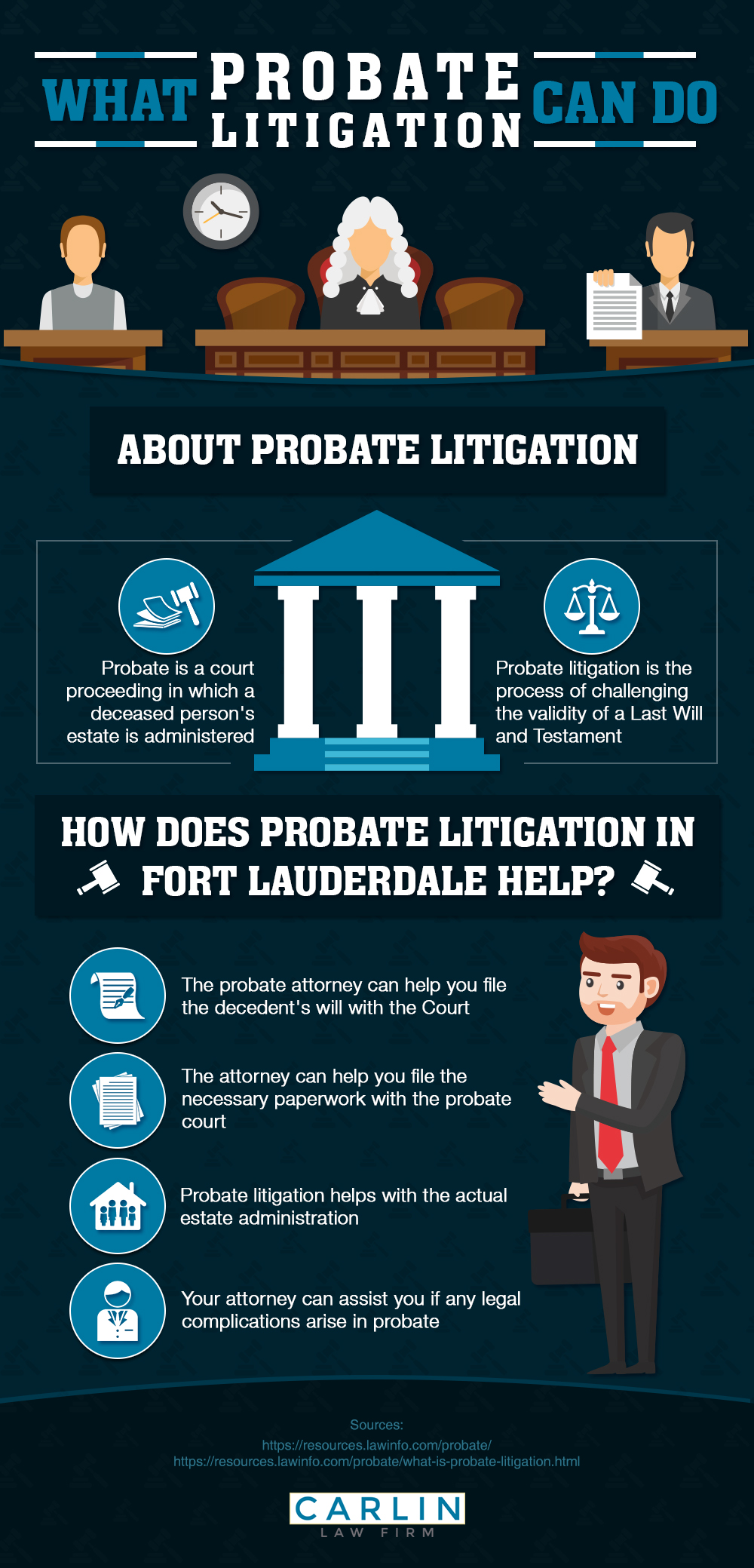This infographic explains the purpose of probate litigation and when an attorney’s assistance is required during the process. In the U.S., probate is a court proceeding to administer the estate of a deceased person. If an involved party finds that the probate process is not lawfully administered, he or she can initiate probate litigation to challenge the legal validity of the Last Will and Testament.
A probate attorney can offer a range of services during your probate litigation. For example, probate litigation attorneys can typically assist with the actual administration of the estate property, as well as with filing the decedents will with the Court. Additionally, your attorney should be able to assist you if there are any legal complications during the probate process, while aiding you with filing any necessary paperwork with the Court.
For more information on probate litigation, refer to the infographic below.


